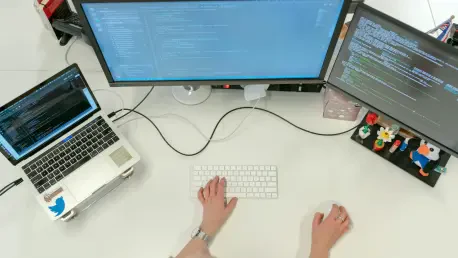I’m thrilled to sit down with Sofia Khaira, a renowned specialist in diversity, equity, and inclusion, who also brings her expertise in HR to the table as we discuss Kinetic Seas’ groundbreaking new platform, Skilliks. With a passion for enhancing talent management and fostering inclusive work environments, Sofia offers a unique perspective on how Skilliks integrates AI-driven solutions with human-centric strategies to revolutionize software development. In our conversation, we explore the platform’s role in bridging the gap between rapid AI advancements and internal team capabilities, its innovative approach to talent development, and the practical benefits of its unified system for project management and deployment flexibility.
How did Kinetic Seas identify the need for a platform like Skilliks, and what inspired its creation?
We saw a clear disconnect in the industry—AI tools were advancing at a breakneck pace, but many organizations struggled to integrate them effectively into their workflows. During our own AI projects at Kinetic Seas, we encountered challenges like maintaining complex codebases and dealing with high support costs. It became evident that companies needed more than just tools; they needed a system to align their people, skills, and projects. That’s where the idea for Skilliks was born—a platform to streamline the entire lifecycle of AI-driven software development.
What are some of the biggest hurdles companies face in keeping up with the fast evolution of AI-assisted software development?
One major hurdle is the sheer speed of change. New AI tools and methodologies emerge almost daily, and most companies lack the infrastructure or trained personnel to adapt quickly. There’s also a significant talent shortage—finding professionals skilled in AI is tough, and the competition is fierce. This often leaves teams overwhelmed, unable to fully leverage AI’s potential, and stuck with outdated processes that can’t support modern demands.
How does Skilliks help organizations overcome the gap between cutting-edge AI tools and their internal team capabilities?
Skilliks acts as a bridge by integrating project management, HR, training, and DevOps into one cohesive platform. It assesses a team’s current skills, identifies gaps, and creates tailored learning plans to upskill employees. By mapping project needs to the right personnel and AI tech stack, it ensures teams aren’t just reacting to changes but are proactively equipped to handle them. This reduces reliance on external consultants and builds sustainable internal expertise.
Can you walk us through how Skilliks integrates areas like project management, HR, and DevOps for a typical software project?
Absolutely. Imagine a company starting a new AI-driven project. Skilliks first analyzes the project requirements and matches them to the skills of available team members through its HR module. If there are gaps, the training component generates personalized learning plans. The project management tools then track progress and milestones, while the DevOps integration ensures seamless deployment and maintenance across chosen environments. Everything talks to each other in real-time, so there’s no silos—just one fluid system guiding the project from start to finish.
What advantages does this unified approach offer compared to using separate tools for each function?
The biggest advantage is efficiency. Separate tools often lead to fragmented data, miscommunication, and wasted time switching between systems. With Skilliks, everything is centralized, so teams have a single source of truth. This cuts down on errors, speeds up decision-making, and lets everyone focus on the work rather than managing multiple platforms. Plus, the AI-driven insights help anticipate issues before they arise, which standalone tools rarely offer.
How does Skilliks tackle the shortage of AI talent within organizations?
It starts by mapping out the skills within a team and comparing them to what a project needs. Once gaps are identified, Skilliks generates role-specific learning plans to upskill internal staff, rather than relying on external hires. This approach not only addresses immediate needs but also builds long-term capability within the organization. It’s about empowering existing talent to grow into the roles that AI-driven projects demand.
What factors does Skilliks consider when recommending an AI tech stack and strategy for a specific project?
Skilliks looks at a variety of elements, like the project’s goals, the team’s current expertise, and the organization’s infrastructure. It also factors in scalability needs, budget constraints, and compatibility with existing systems. By analyzing these aspects, it suggests the most suitable AI tools and strategies, ensuring they’re practical and aligned with the company’s broader objectives.
Why was it important for Skilliks to support both cloud and on-premise deployments across various systems?
Flexibility is key in today’s diverse tech landscape. Not every company operates the same way—some prefer cloud for scalability, while others need on-premise setups for security or compliance reasons. By supporting platforms like AWS, Azure, and Oracle, Skilliks ensures that organizations can adopt it without overhauling their existing systems. This adaptability makes it accessible to a wider range of businesses, regardless of their tech preferences.
What kind of feedback have you received from initial users during the beta testing phase of Skilliks?
Since the beta launched on July 11, we’ve had incredibly valuable input from our early users. Many have praised the platform’s ability to simplify complex workflows and appreciated how it helps identify skill gaps. Some feedback highlighted areas for improvement, like enhancing user onboarding to make the initial setup even smoother. Overall, it’s been encouraging to see how Skilliks is already making a difference for both professional and free users transitioning from other platforms.
What is your forecast for the future of AI-driven software development and the role platforms like Skilliks will play in it?
I believe AI-driven software development will only accelerate, becoming more integral to how businesses operate. However, the challenge of aligning human talent with these technologies will persist. Platforms like Skilliks will be crucial in democratizing access to AI capabilities, helping companies of all sizes stay competitive by building internal expertise and streamlining processes. I foresee such systems becoming standard, acting as the backbone for innovation in an increasingly AI-centric world.









